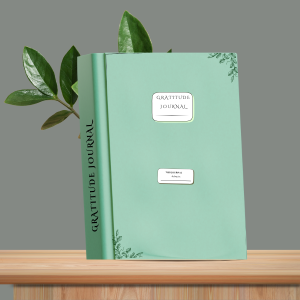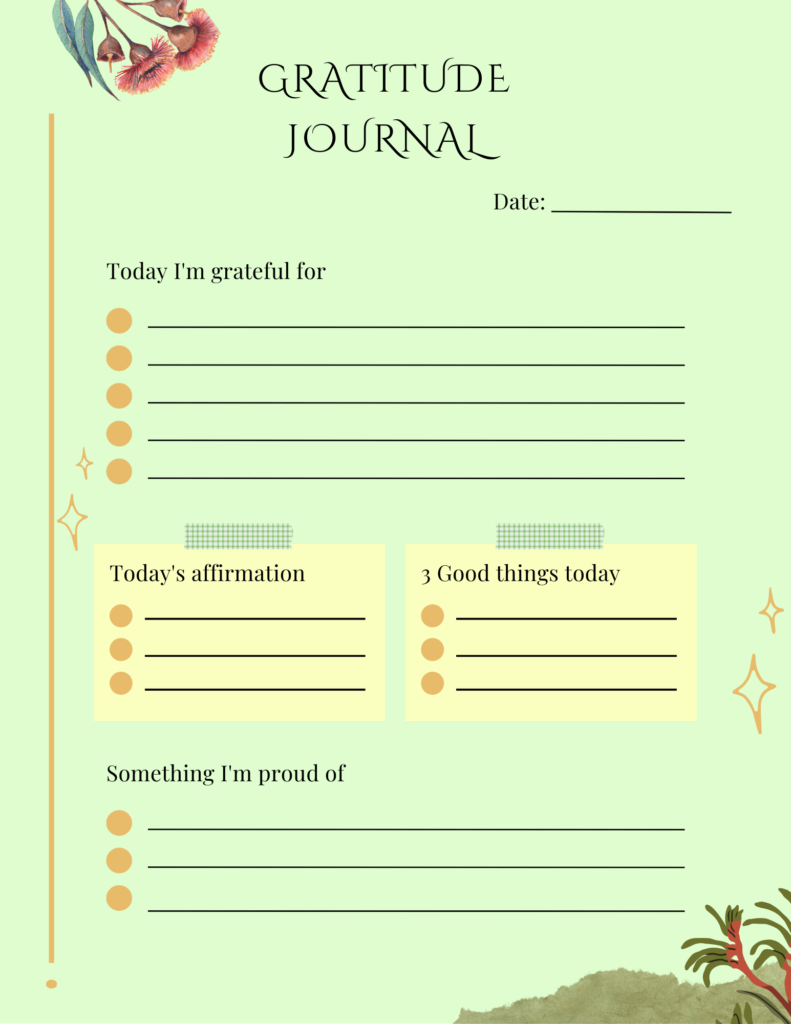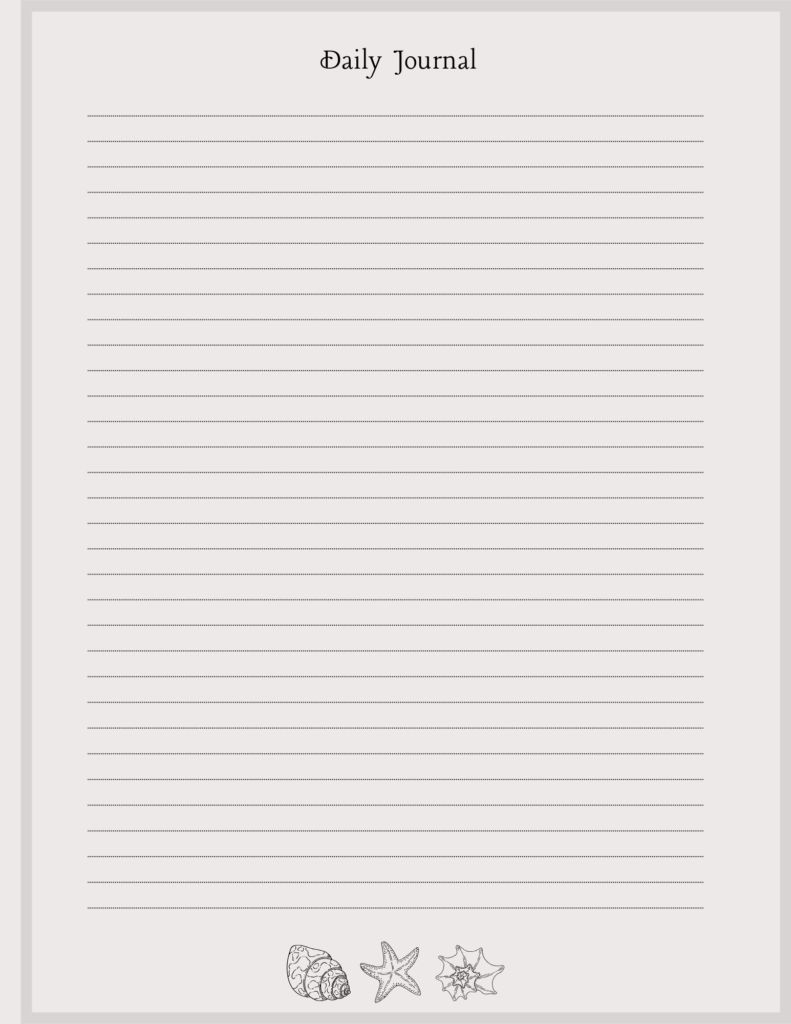In the midst of a busy life filled with responsibilities, distractions, and constant noise—our thoughts often get tangled. We feel overwhelmed, unsure of ourselves, and uncertain about the next step. In those moments, clarity can feel like a luxury and confidence, a distant dream.
But what if both could begin with something as simple as a pen and paper?
Journaling is more than just writing down your day. It’s a proven mental and emotional wellness practice that helps you understand your thoughts, manage your emotions, and reconnect with your inner voice. Whether you’re navigating personal growth, chasing goals, or simply trying to get through a tough week, journaling can be your most powerful (and private) ally.
Here’s why journaling can help you find both clarity and confidence—and how to start.
1. Journaling Organizes the Chaos in Your Mind
Our brains process thousands of thoughts each day. Without a way to sort them, they become overwhelming. Journaling gives your mind a place to unload everything—ideas, worries, feelings, plans—so they no longer swirl around aimlessly.
Writing forces you to slow down and choose your words, which naturally leads to more focused thinking. The moment you put your thoughts on paper, they become clearer. What felt huge in your mind may suddenly seem manageable when written down.
Think of your journal as your mental inbox. Instead of letting things pile up, you’re processing them one at a time.
2. It Reveals Hidden Patterns and Emotional Triggers
One of the most powerful benefits of journaling is how it helps you notice things you wouldn’t otherwise see. By writing regularly, you start to recognize repeating patterns: negative thoughts, self-sabotaging behaviors, or recurring fears.
For example, you might realize that your anxiety spikes every Sunday evening—or that you often doubt yourself after conversations with a certain person. With that awareness, you can begin to set boundaries, change habits, or shift your mindset.
Awareness is the first step to change. And your journal gives you a front-row seat to your own growth.
3. Journaling Builds Emotional Resilience
Life is filled with emotional ups and downs, and most of us don’t get taught healthy ways to process feelings. Journaling becomes a safe emotional release. It lets you pour your heart out—without filters, fear, or judgment.
Instead of bottling up stress, anger, sadness, or fear, you’re giving those emotions a voice. That act of expression is not only healing, but it also strengthens your emotional muscles. You learn that you can face hard things, sit with your emotions, and come out stronger on the other side.
Journaling is like emotional first aid—easy, accessible, and always available.
4. It Deepens Self-Awareness and Builds True Confidence
Confidence doesn’t come from external validation—it grows from knowing and trusting yourself. And journaling is one of the most direct ways to build self-awareness.
When you journal, you begin to understand your values, your boundaries, your dreams, and your triggers. You learn what motivates you, what drains you, and what gives you joy. That clarity helps you make better decisions aligned with who you are.
The more you understand and honor your true self, the more your confidence grows. You stop chasing perfection or approval and start standing in your own power.
5. It Helps You Set Intentions and Celebrate Your Progress
Journaling isn’t just for processing emotions. It’s also a space for dreaming, goal-setting, and celebrating. Writing down your goals makes them more tangible. Tracking your habits or daily wins—even the small ones—helps you stay focused and motivated.
Try starting each week by writing your top 3 priorities or intentions. End each day by noting one thing you’re proud of. These simple actions shift your mindset from “I’m not doing enough” to “Look how far I’ve come.”
Acknowledging your progress in writing builds confidence, especially on days when doubt creeps in.
6. It’s a Judgment-Free Zone for Self-Expression
Your journal is the one place where you don’t have to be polished, productive, or perfect. You can be raw, real, and vulnerable. You don’t have to worry about being misunderstood—because your journal is just for you.
That safe space encourages deeper honesty. You begin to express truths you might not say out loud. And often, in that honesty, you find breakthroughs. You realize what you really want. You let go of things that no longer serve you. You give yourself permission to change, grow, and start again.
How to Start a Journaling Practice (Even if You’re Busy)
You don’t need to spend hours writing or have fancy supplies. Journaling can be simple, quick, and flexible. Here are a few easy ways to begin:
Start with prompts: Use questions like “What’s on my mind right now?”, “What’s something I need to let go of?”, or “What would my ideal day look like?”
Use a printable journal: A structured journal with daily prompts can make it easier to stay consistent (you can even check out ones available on mizhdew.com).
Set a 5-minute timer: Even just five minutes of free-writing can make a huge difference.
Write without judgment: There’s no right or wrong way to journal. Spelling, grammar, and neatness don’t matter—just honesty.
Final Thoughts: Clarity and Confidence Are Within Reach
Journaling is more than a productivity hack or a wellness trend—it’s a practice of self-connection. In a world that constantly demands your attention, your journal gently invites you back to yourself.
Clarity doesn’t come from trying to control everything. Confidence doesn’t come from pretending to have it all together. They come from self-awareness, reflection, and honoring your inner voice—day by day, page by page.
So grab a notebook, open a fresh document, or print out a guided journal—and start writing your way to a clearer, more confident you.




